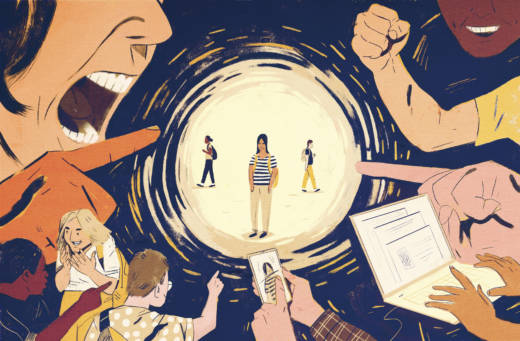After the 2016 presidential election, teachers across the country reported they were seeing increased name-calling and bullying in their classrooms. Now, research shows that those stories — at least in one state — are confirmed by student surveys.
Francis Huang of the University of Missouri and Dewey Cornell of the University of Virginia used data from a school climate survey taken by over 150,000 students across Virginia. They looked at student responses to questions about bullying and teasing from 2015 and 2017. Their findings were published Wednesday in Educational Researcher, a peer-reviewed journal of the American Educational Research Association.
In the 2017 responses, Huang and Cornell found higher rates of bullying and certain types of teasing in areas where voters favored Donald Trump over Hillary Clinton in the 2016 election.
Seventh- and eighth-graders in areas that favored Trump reported bullying rates in spring 2017 that were 18 percent higher than students living in areas that went for Clinton. They were also 9 percent more likely to report that kids at their schools were teased because of their race or ethnicity.
In the 2015 data, there were "no meaningful differences" in those findings across communities, the researchers wrote.



9(MDAxOTAwOTE4MDEyMTkxMDAzNjczZDljZA004))